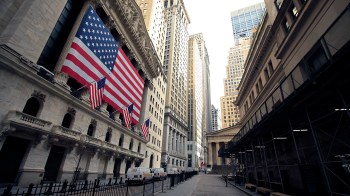Does P&G deal mark a sea change?
TEXT OF STORY
Kai Ryssdal: Procter & Gamble, proud purveyor of household staples like Tide and Crest also has a huge prescription drug operation. It’s a multibillion-dollar part of P&G’s bottom line, but it never really caught on like the company had hoped. So today the Irish pharmaceutical firm Warner Chilcott announced it’ll pay just over $3 billion to take drugs off P&G’s hands.
Perhaps most interesting, though, is what the P&G deal says about M&A — mergers and acquisitions. It’s been a while since lenders have been financing these kinds of purchases like they used to. Marketplace’s Jeff Tyler reports.
JEFF TYLER: Money for companies to buy other companies has been scarce for the last year.
KEN MacFadyen: Across the board, lenders have been real gun shy.
Ken MacFadyen is editor of the Mergers & Acquisitions Journal. He says caution in the marketplace kept Procter & Gamble from getting as much money as it wanted for its drug company.
MacFadyen: I think they did sell it for less than they might have hoped for in a good market.
The sale is expected to be worth about $3 billion for P&G.
MacFadyen: I would say, in a normal market, they almost could have gotten double that amount.
But MacFadyen sees the deal as a heartening harbinger for the banking industry.
MacFadyen: That’s a good sign to see that the lenders are active again.
A consortium of banks funded the deal to the tune of $4 billion. That includes money for the buyer, Warner Chilcott, to pay down debt.
Vipal Monga covers mergers and acquisitions for The Deal magazine.
Monga: The fact that the banks are willing to do this suggests that their risk appetite is returning.
But that appetite for risk is still a fairly restricted diet. Monga says banks have viewed drug companies as almost recession-proof cash machines, funding several massive pharmaceutical mergers last spring.
MONGA: The banks were willing to put out the money because of the amount of cash-flow that Warner Chilcott generates. And the fact that it was a health-care deal. I don’t think they would have been putting out $4 billion for a transportation deal, for example.
He expects to see a wave of mergers as companies gobble-up their weaker rivals at bargain prices. But he doesn’t expect momentum to really pick-up until next year.
I’m Jeff Tyler for Marketplace.
There’s a lot happening in the world. Through it all, Marketplace is here for you.
You rely on Marketplace to break down the world’s events and tell you how it affects you in a fact-based, approachable way. We rely on your financial support to keep making that possible.
Your donation today powers the independent journalism that you rely on. For just $5/month, you can help sustain Marketplace so we can keep reporting on the things that matter to you.


















